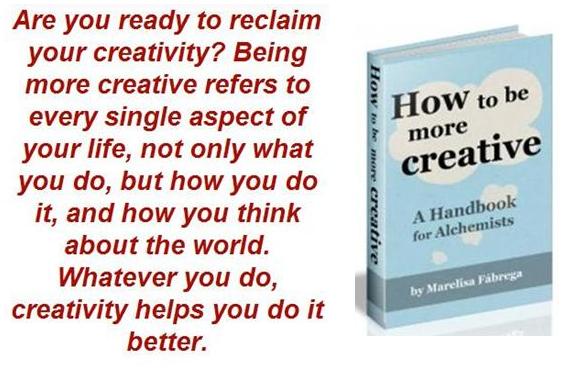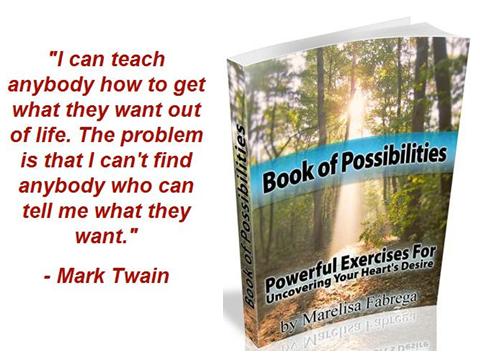 Happiness is less elusive than a lot of people seem to think. Researchers and positive psychologists have discovered that there are concrete steps you can take in order to be happier. Below you’ll find 17 things you can do to be happier now.
Happiness is less elusive than a lot of people seem to think. Researchers and positive psychologists have discovered that there are concrete steps you can take in order to be happier. Below you’ll find 17 things you can do to be happier now.
1. Get more sleep. A study done at the University of Michigan found that getting just a little more sleep had a greater effect on your daily happiness than a large increase in income. Be happier in 2012 by resolving to discover the amount of sleep which your body needs, and then taking the necessary steps to make sure that you get it.
2. Break large goals down into small, manageable steps. Harvard positive psychologist Shawn Achor, author of “The Happiness Advantage”, explains that research shows that when we feel that we’re in control of a situation, we’re happier. When a task is very large, we lose the feeling of control and we feel overwhelmed. This triggers fear and we feel stressed and uncomfortable.
You can regain control by breaking the task down into small, manageable steps. Achor recommends that you set large goals, and then you select a small area of that goal to conquer; he calls this small area of focus your “Zorro Circle”.
3. Keep a happiness journal. Something else that Achor recommends is that you keep a happiness journal. Do Follow these steps:
- Every day, journal for five minutes about one positive experience you’ve had over the past 24 hours.
- Make it as detailed as you can.
Because your brain is not very adept at telling the difference between something that you’re visualizing and something that you’re experiencing, when you relive a positive experience by journaling about it, you get a positive double whammy from that experience.
In addition, when your mind thinks that lots of good things are happening to you, it has a tendency to start scanning your environment for the positive, instead of looking for the negative. Since we see what we look for, this means that you’ll begin to notice more of the good things that are going on around you. And when your attention is placed on the things that are going well in your life, you feel happier.
4. Overcome perfectionism. A lot of people are caught in what Tal Ben-Shahar, Ph.D., calls “The Myth of Perfection”. These people are obsessed with beauty, youth, wealth, success, and having it all. Ben-Shahar adds that constantly striving for perfection practically guarantees that you’ll be unhappy. After all, perfection is an impossible standard to meet. He explains that in order to be happy you need to do the following:
- Start setting realistic goals;
- See mistakes as an opportunity for improvement;
- Accept that failure is a part of life; and
- Focus on the journey more than on the outcome.
5. Let go of the “If . . . Then” Model. Srikumar S. Rao, Ph.D., author of “Happiness at Work” explains that a lot of people have an “if – then” model when it comes to happiness. That is, they make their happiness conditional on something else happening. Here are some examples:
- If I lose weight, then I’ll be happy.
- If I start making more money, then I’ll be happy.
- If I get married, then I’ll be happy.
Dr. Rao explains that there‘s nothing that you have to get in order to be happy. Happiness is something that’s innately within you; it’s not something that needs to be acquired or achieved. He adds that it’s a good idea to set goals, because they give direction to your life. However, you shouldn’t make your happiness contingent on achieving those goals. Allow yourself to be happy now, as you strive to achieve your goals.
6. Train your mind for happiness. The Dalai Lama believes that the very purpose of life is to seek happiness. He explains that the way to be happy is to deliberately select and focus on positive mental states which lead to happiness—such as love, compassion, patience, and generosity– and to challenge negative mental states which lead to suffering—such as resentment, hatred, greed, and envy.
In addition, he indicates that cultivating positive mental states requires a systematic training of the mind. Inner discipline will allow you to be constantly aware of your thoughts, and to consciously make the decision of replacing negative mental states with positive ones; this, in turn, results in feelings of happiness and joy.
The Dalai Lama teaches that you can train your mind to return to a place of inner peace, regardless of what may be going on around you in the external world.
7. Do work that allows you to achieve a state of flow. You achieve the state of flow when all of your attention is engrossed in the activity that you’re carrying out, so that you have no attention left over to think about yourself.
That is, your ego—or your mental chatter—quiets down, and you’re no longer thinking about how you were slighted by someone the day before, or worrying about how your work will be received in the future. All of your attention is in the present moment, and you’ve become one with the activity that you’re performing. When you achieve this, your work becomes a spiritual practice.
8. Practice random acts of kindness. Studies show that helping and being kind to others has a strong positive impact on a person’s happiness. When you’re kind to others, your brain releases dopamine, which is the feel-good hormone.
In addition, helping others makes us feel capable and strengthens our feeling of connection with others, both of which are happiness boosters. Take the challenge posed by Sonja Lyubomirsky, one of the leaders in the field of positive psychology and the author of “The How of Happiness”, to perform five acts of kindness one day a week.
9. Increase Your Daily Pleasures. One of the tools that’s used by proponents of “Positive Psychology” to measure happiness is the Day-Reconstruction Method. To apply this method, detail everything that you do on a particular day, and rate how you felt at the time.
By analyzing your life in this way you can make changes to tip joy in your favor. David Schkade, from the University of California San Diego, explains that if you transfer even an hour of your day from activities that you dislike, to activities that you enjoy, this will significantly improve your overall level of happiness.
10. Remember the mind-body connection. In addition to getting adequate sleep, you need to exercise on a regular basis and eat a healthy diet. These positive habits will lead to both physical and mental health.
11. Simplify. Dr. Ben-Shahar—who has already been mentioned in this post—explains that one of the biggest causes of unhappiness is time poverty. We take on too much, and we’re constantly running around trying to get everything done. This inhibits our ability to derive happiness from any of the activities that we participate in. Therefore, one of the best ways to increase your happiness is to simplify.
Identify the things that are most important to you, focus on those, and prune out the rest. When you simplify you can begin to experience time affluence. Having time affluence will make you happier.
12. Laugh more. Over the past several years countless studies have been conducted that show the positive effects that laughing has on one’s physical and mental health. Laughter decreases stress hormones in the body–such as cortisol and adrenaline–, and it releases hormones and chemicals that have positive effects on our system. Joyful laughter is the fastest way to create a positive state of mind.
13. Act in a way that will lead to happiness. Henepola Gunaratana–a Sri Lankan Buddhist monk–explains in his book “Eight Mindful Steps to Happiness” that if we look carefully at our lives, we will realize that the choices we make lead to either happiness or unhappiness. Everything we think, say, or do is a cause, which will inevitably lead to some effect. Once we understand this, the following will happen:
- We will naturally want to think, say, and do things which will lead to positive results.
- At the same time, we will avoid having thoughts, saying things, and doing things that will lead to negative results.
That is, happiness requires the following:
- That we remain mindful of what we are thinking, saying, and doing.
- That we continuously ask ourselves if the choice which we’re about to make is likely to lead to positive or negative results.
- That we make those choices which will lead to a happier life.
14. Practice gratitude. Robert Emmons, author of “Thanks!: How the New Science of Gratitude Can Make You Happier”, has conducted studies that show that when people regularly engage in the systematic cultivation of gratitude, they experience a variety of measurable benefits: psychological, physical, and interpersonal.
Giving thanks shifts your focus from what is lacking in your life, to the abundance that is already present. In addition, it makes people happier and more resilient, it strengthens relationships, it improves health, and it reduces stress. An easy way to start practicing more gratitude in your life is to make a list each day of five things that you’re grateful for.
15. Forgive. Positive psychologist Sonja Lyubomirsky explains in “The How of Happiness” that 50 percent of individual differences in happiness are governed by genes, 10 percent by life circumstances, and the remaining 40 percent by what we do and how we think.
That is, 40 percent of our happiness is determined by our intentional activities and strategies. She adds that one of the happiness enhancing strategies which you should adopt is to forgive; let go of anger and resentment toward those whom you feel have wronged you.
16. Create a dream list. In “How We Choose to Be Happy”, Rick Foster and Greg Hicks present the nine choices that extremely happy people make. One of these choices is centrality, which means that they make central to their lives that which makes them happy. Foster and Hicks recommend that you create a dream list, and that you make it the driving force in your life. To be happier, become devoted to doing what makes you happy.
17. Take responsibility for your life. According to Foster and Hicks, another of the choices that happy people make is to be accountable—or to take responsibility—for their lives. They explain that happy people don’t play the victim, and they don’t waste their time and energy blaming others. When something goes wrong, people who are happy look for ways in which they can improve the situation, and then they take the best action that they can, given the set of circumstances.
Start doing the 17 things above and live your best life by being happier now.



Related Posts:
- Five Ways to Buy Happiness
- A Happiness Lesson From Frasier Crane
- 23 Ways to Increase Your Happiness
- How to Be Happy (Poster)
Did you enjoy this article? Subscribe to “Daring to Live Fully” by RSS or by email, and get free updates.








 Marelisa Fabrega is a lawyer and entrepreneur. She holds a Bachelor of Science in Business Administration from Georgetown University in Washington, D.C., as well as a Juris Doctor from the Georgetown University Law Center. You can learn more about her
Marelisa Fabrega is a lawyer and entrepreneur. She holds a Bachelor of Science in Business Administration from Georgetown University in Washington, D.C., as well as a Juris Doctor from the Georgetown University Law Center. You can learn more about her 






Comments on this entry are closed.
What good suggestions. This post is the best I’ve seen on the topic. Thank you so much.